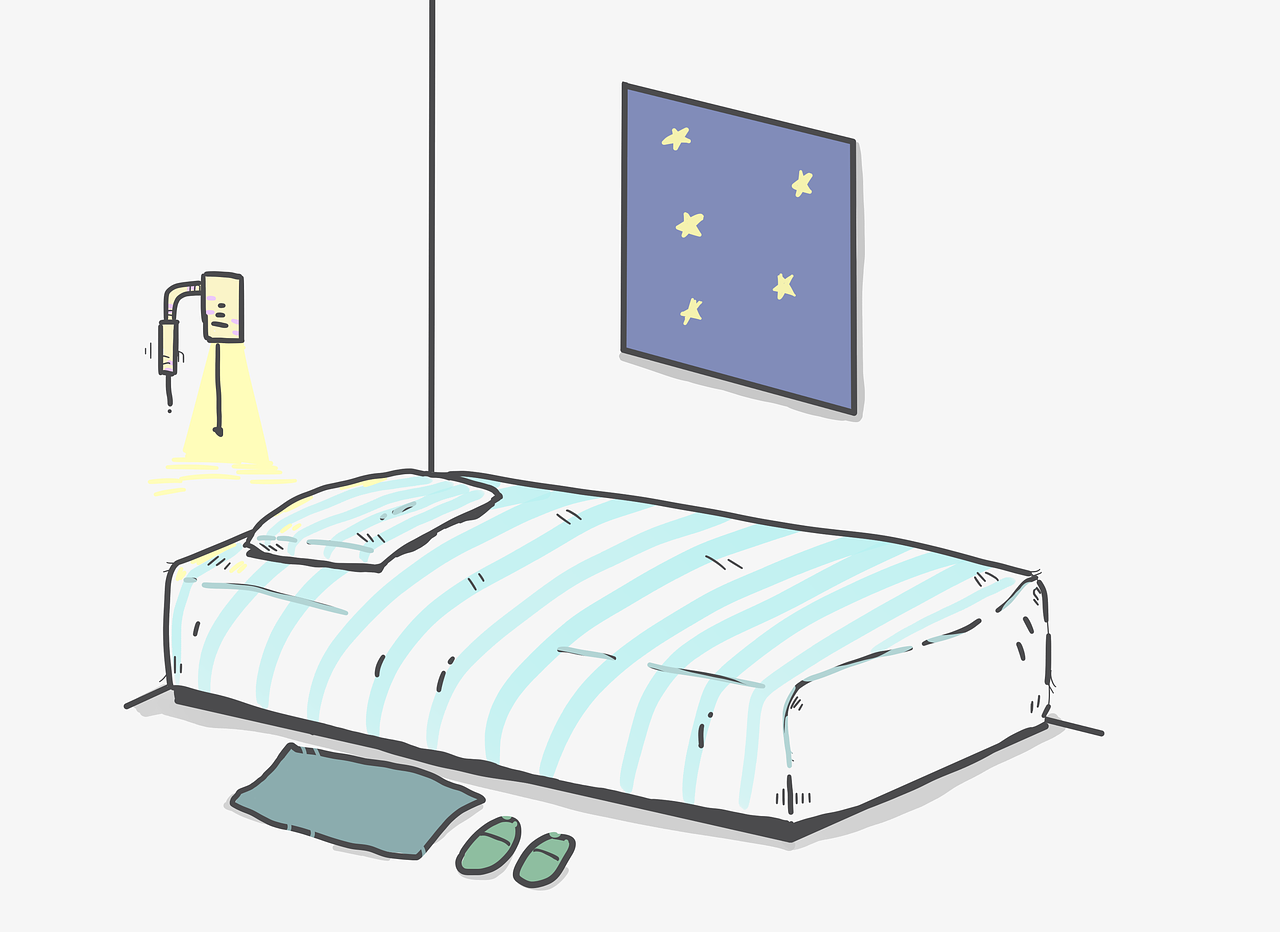Getting sufficient good quality sleep is extremely important for maintaining a healthy mind and body. Over time, getting too little sleep or repeatedly experiencing poor quality sleep can negatively affect your health in a number of ways. Besides leaving you feeling tired and groggy during the day, sleep deprivation can put you at risk for more severe health consequences like diabetes and heart disease. Read on for some great tips to help you fall asleep and stay asleep so that you start each day feeling rested and ready to take on the world.
1) Keep to a schedule
Your body’s circadian rhythms help control various aspects of your bodily functions, including your sleep-wake cycle. Getting to bed and waking up at the same time every day helps signal to your body when you should feel most active during the day and when you should begin to produce melatonin (the chemical that signals to your brain when it’s time to sleep) to help you get into rest mode at night. Keeping a regular sleep schedule will help get your body into a natural rhythm so that you feel appropriately energized in the morning and begin to feel sleepy as bedtime approaches.
2) Avoid napping
Napping during the day can ruin your nighttime routine and make getting to sleep on time even more difficult, so do your best to avoid long naps especially close to bedtime. If you feel like you absolutely need to nap, do so for no more than 30 minutes (set a timer!) and try your best not to nap after 3 PM so your nighttime routine is not greatly impacted.
3) Create a good sleep environment
Set the stage for your best night’s sleep by making sure your bedroom is as comforting and relaxing as possible. Turn the A/C temperature down, turn any lights off, and make sure your bedding is clean and cozy before slipping under the covers. You can also try playing some calming music and spraying a light sleep-inducing fragrance like lavender if you find that it helps. Do your best to avoid the use of electronic devices like laptops and cellphones in the hour or two leading up to bed and avoid using your bedroom for any activities other than sleep and intimacy so you only associate the space with rest and relaxation.
4) Avoid stimulants
Avoid smoking and consuming caffeine-heavy products like coffee, sodas, and chocolate at least 4-6 hours before bedtime. Stimulants like nicotine and caffeine can negatively affect your ability to fall asleep as well as your quality of sleep. A study conducted by the Wayne State College of Medicine in 2013 found that drinking coffee up to 6 hours before bed greatly impacted study participant’s sleep quality.
5) Avoid alcohol
Avoid drinking alcoholic beverages at least 4-6 hours before bedtime. Alcohol has been shown to contribute to poor quality sleep by increasing instances of snoring, obstructive sleep apnea, and other sleep disturbances. One Finnish study even found that consuming alcohol can disrupt the body’s nighttime elevation of human growth hormone which, among other important functions, helps to regulate your body’s sleep-wake cycle.
6) Stay active during the day
Make sure you are staying active and getting regular exercise during the daytime. Regular exercise can help you burn off any extra energy that may otherwise keep you lying awake at night and can also contribute to better quality sleep overall. Just make sure you don’t exercise too close to bedtime, as the energy boost you can sometimes experience after a workout may actually make it more difficult for you to fall asleep.
7) Eat a healthy diet
Eat a balanced diet full of whole foods and avoid junk foods, especially close to bedtime. Sugary, fatty foods can upset your digestive system and lead to poor quality sleep at night by contributing to indigestion or even heartburn that can keep you awake at night.
8) Create a nighttime ritual
Whether it’s taking a warm bath, curling up with a good book, or performing an elaborate skincare routine, find a ritual that will help you unwind before bed. This will help you to get into a restful mindset and, over time, act as a cue for your body to begin preparing to fall asleep.
9) Keep a sleep journal
Keep a sleep journal by your bed so that you can make a note of any factors that seem to be affecting your ability to fall asleep or your sleep quality. If you find that you are waking up in the middle of the night and having trouble getting back to sleep, jot down what woke you up and what you are feeling so that you have notes to take along to your next doctor’s visit. Keeping a journal can also help you monitor the effectiveness of any changes you make to your bedtime routine.
10) Don’t stress about it
If you just can’t seem to fall asleep, don’t stress about it. Lying awake and watching the minutes slip away will only stress you out more and make it even more difficult to fall asleep. A good thing to do when you find yourself lying awake at night is to get out of bed and do a slow-paced relaxing activity like reading a book or listening to calming music until you feel sleepy enough to go back to bed.
If you find that you still can’t get a good night’s rest no matter what you try, reach out to your doctor as soon as possible. Getting good quality sleep is essential for good health and you may be one of the millions of Americans who are affected by a sleep disorder. Some sleep conditions like sleep apnea can have very serious health consequences if left untreated so contact your doctor for an evaluation if you feel you may be affected.
Sources:
https://www.sleepfoundation.org/sleep-hygiene/healthy-sleep-tips
https://www.healthline.com/nutrition/17-tips-to-sleep-better
https://subscriber.alphanet.org/s/article/6-11-6-sleep-problems
